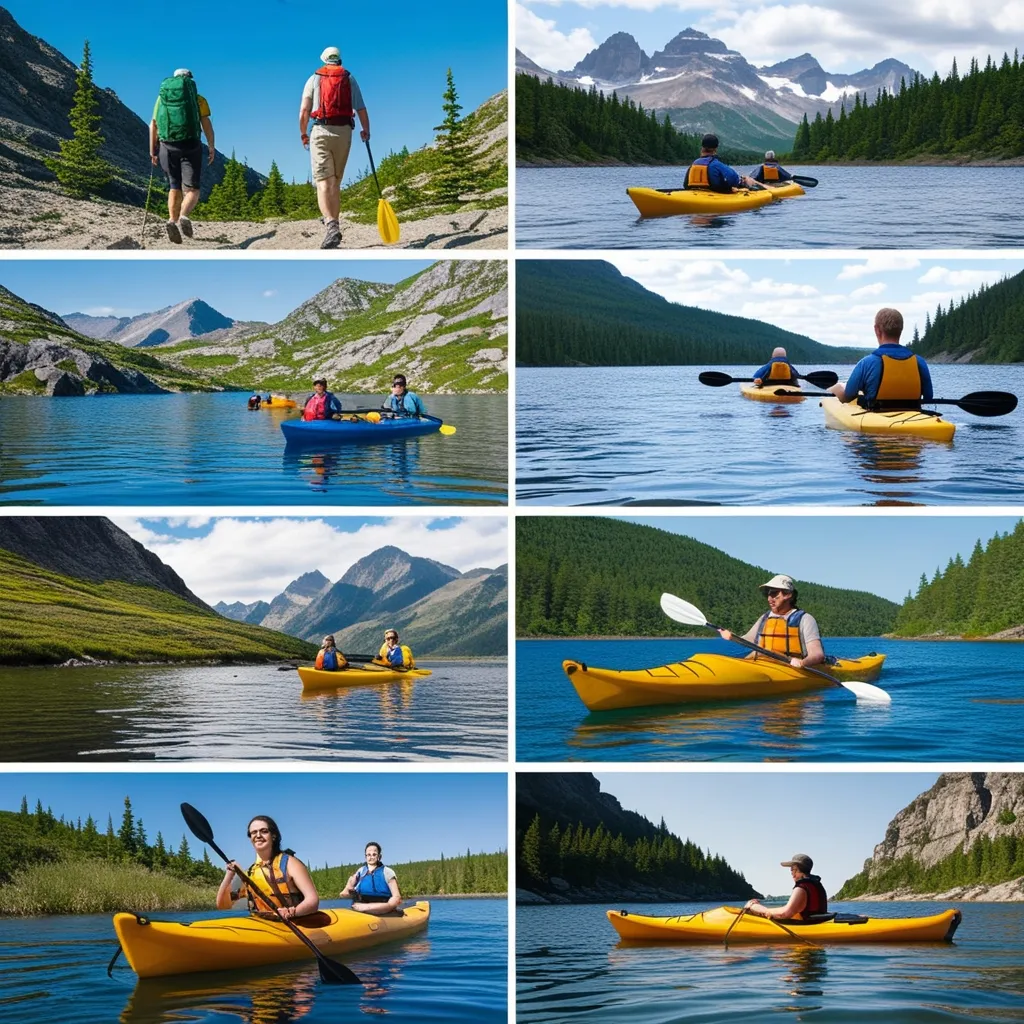Enjoying the great outdoors is a true passion for many, and doing it sustainably is key to preserving the natural environment for future generations. The idea of sustainable outdoor adventures is not just about the thrill and excitement; it’s about keeping these beautiful places vibrant and healthy for a long time to come.
Sustainability means ensuring that our actions today don’t compromise the health of our ecosystems in the future. Think of it like considering the impacts of what we do now on the generations to come. This approach is essential when we head out into nature, whether for a short hike or a multi-day adventure.
The way adventure tourism is structured can significantly influence environmental attitudes. Adventure guides, for example, hold a unique position—they’re not just leaders but also storytellers and organizers. Their role is crucial in shaping tourists’ understanding and behavior toward sustainability. The effectiveness of their influence, however, can hinge on various factors, including the alignment of the company’s policies with sustainable practices.
Choosing human-powered activities is a fantastic way to minimize our environmental footprint. Hiking, biking, or paddling aren’t just fun—they also reduce the use of fossil fuels, decrease noise pollution, and lower the chances of harming wildlife. For example, opting for kayaking over motorboats can prevent collisions with marine life and contribute to quieter, more harmonious natural adventures.
Exploring closer to home can greatly enhance the sustainability of our outdoor activities. By reducing the need for long-haul flights, our carbon emissions see significant decreases. Plus, this approach supports local economies and nurtures domestic tourism. Often, we overlook the amazing recreational opportunities available right in our local areas, be it local trails or nearby parks.
Selecting destinations thoughtfully is crucial, especially in the era of social media where certain spots can become overly popular. Overcrowding these locations can lead to significant environmental degradation. Opting for less-known destinations, therefore, can be highly rewarding and sustainable. Sometimes, these lesser-known locations provide unique and unforgettable experiences, minus the huge crowds.
Your choice of gear can have a marked impact on your sustainability efforts. Selecting eco-friendly brands that prioritize sustainable materials and durability is a positive move. Reusing, recycling, borrowing, or renting gear helps to cut down waste and promotes eco-friendly practices. Second-hand shops can also be treasure troves for quality adventure equipment, providing both financial and environmental benefits.
The Leave No Trace principles offer a straightforward yet impactful way to reduce environmental impact. These guidelines include principles like packing out all food and waste, protecting water sources from contamination, and avoiding damaging shortcuts through sensitive ecosystems. When practiced consistently, they collectively help significantly in maintaining the health of natural habitats.
Engaging with community-focused organizations can also amplify your sustainable outdoor practices. These groups often spearhead conservation projects, clean-up drives, and educational programs aimed at protecting local environments. Participating in these activities not only provides a sense of giving back but also deepens your connection with the places you visit.
Small actions matter, too, when it comes to reducing environmental impacts. Simple measures like avoiding BBQs to prevent accidental fires, sharing rides to minimize traffic, and choosing sustainable travel options can add up. Essentially, it boils down to being conscious of how our actions affect the environment and taking steps to mitigate those impacts wherever possible.
Developing a deep connection with nature is also vitally important. This bond not only enhances our well-being but also drives sustainable behaviors. Adventure guides can foster this connection through their storytelling and insights during tours, inspiring a genuine appreciation and respect for natural environments, naturally leading to more sustainable practices.
Climate change is reshaping many of the landscapes we love, and the adventure tourism industry is evolving in response. If managed well, adventure tourism can be a sustainable form of tourism. For instance, focusing on high-paying tourists interested in activities that complement the local landscapes can create bespoke tourism products that support conservation efforts and sustainable development. But it’s a balancing act to ensure that the benefits of tourism don’t come at the expense of delicate ecosystems.
Participation in outdoor activities is linked to improved subjective well-being. The emotional connections and spiritual experiences we gain from being in nature can inspire us to adopt more sustainable, pro-environmental behaviors. By focusing on these well-being aspects, we foster a deeper appreciation for sustainability in our outdoor adventures.
Here are some practical tips for sustainable adventures:
- Pack Out What You Pack In: Always carry reusable water bottles and ensure no litter, food, or pet waste is left behind.
- Choose Eco-Friendly Gear: Go for brands that use sustainable materials and focus on durability.
- Explore Locally: Reduce your carbon footprint by opting for local adventures.
- Follow Leave No Trace Principles: Always protect water sources, avoid creating new paths, and respect wildlife.
- Get Involved in Community Projects: Engage in local conservation efforts to help protect and maintain natural environments.
- Select Destinations Wisely: Steer clear of overly crowded or polluted areas and discover lesser-known gems.
By weaving these tips into your outdoor adventures, you can help ensure the natural environments you cherish remain healthy and available for future explorers. Sustainability in outdoor adventures isn’t just about responsibility—it’s also about fostering a deeper connection with nature and contributing to a brighter future for all.






